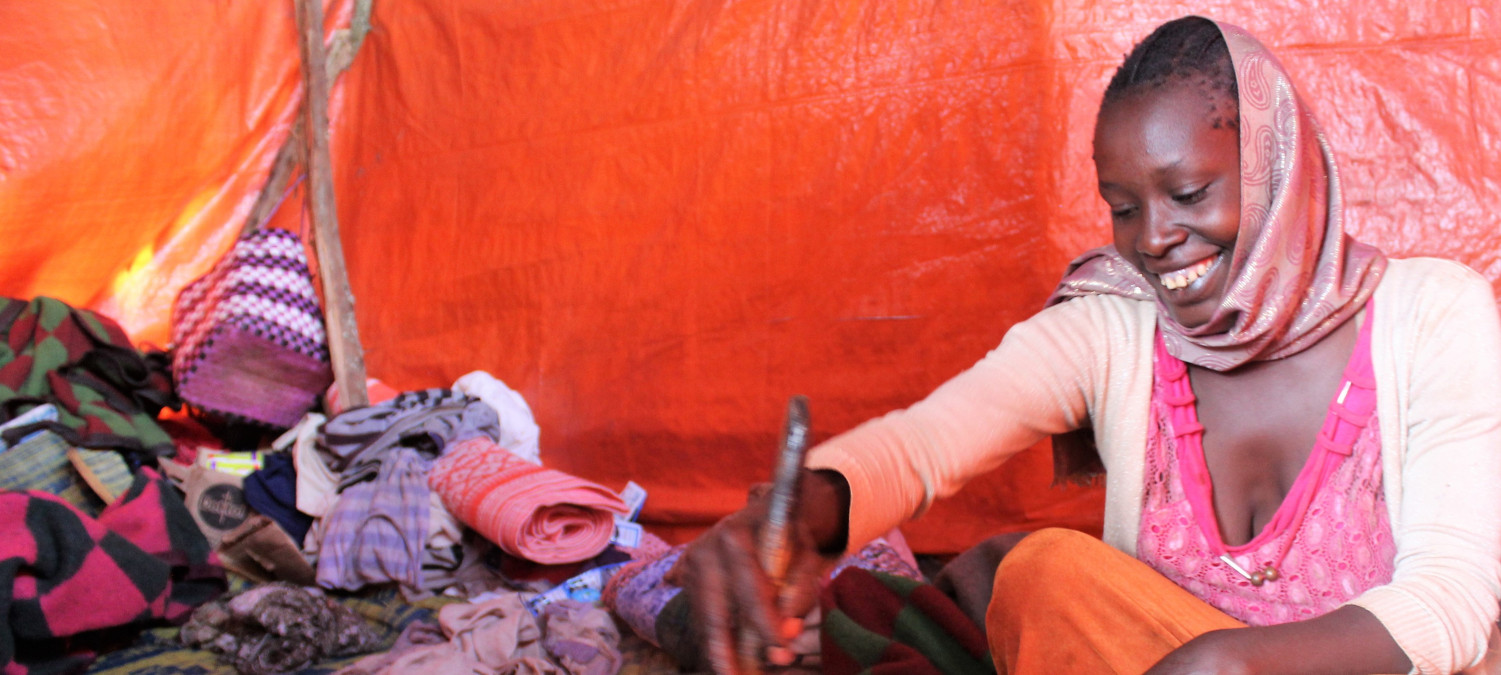“They gave us no warning,” says Medhanit Shuti, a victim of ethnic conflict in Ethiopia
Published: Jun 14, 2019 Reading time: 4 minutes Share: Share an articleUp the green and very steep hills of southern Ethiopia lies a small village unbeknownst to many, a village with less than ten thousand inhabitants. Located within the Gedeo Zone, Churuku village quickly fell victim to ongoing ethnic conflict. In April 2018, the Churuku community were forced to flee their homes to escape conflict on its way to disrupt their lives.

Five thousand, six hundred and sixty five people ended up fleeing to neighbouring communities to seek refuge. In just one day, they had lost their homes, their belongings and their village.
Madhanit Shuti, twenty-eight years old and mother of two, tells us her story. “I remember it happened on a Thursday afternoon. We heard gun shots in nearby villages and a sudden rush of people came running into our village.” She continues: “We didn’t think twice, we carried our children and started running away from our homes. We had no time to collect our belongings as the unexpected situation had forced us to leave everything behind - we were given no warning.”
Over five hundred of us were squeezed together in one classroom
The ethnic tensions led to the destruction of many homes in Churuku, including Medhanit’s house which was previously occupied by her, her husband, her five children and her mother-in-law. “Although we managed to escape in time, they destroyed our home and we lost everything we ever owned,” she says. Medhanit, her family and the rest of the community sought refuge in the nearby village of Haru. “The local district arranged for us to stay in a school there, over five hundred of us were squeezed together in each classroom and even that wasn’t enough; so some stayed in nearby health centres and those who arrived late stayed outside, even when it rained.”
A church in Haru heard about the newly displaced community and generously offered to cook food and provide water for them. Medhanit recalls her days in Haru: “The hosting community really took care of us, but it was still difficult, especially for the children who couldn’t cope and died as a result,” she says. “Our minds couldn’t rest, we became paranoid, we felt we were being followed. In fact, many displaced people further migrated to Yirgacheffe and Dilla, towns suspecting the worst.”
We cooked our meals on corrugated iron
After a long five months, the local district notified the displaced people that it was time to leave and that they no longer had space for them as it was now September and school was about to begin. They assured them that it was now safe to go back to Churuku. Medhanit, her family and most of the community she had sought refuge with, reluctantly returned to Churuku to re-build their lives. “Starting over with nothing was not easy, we build our homes with sticks and twigs, cook our meals on corrugated iron and sleep on a pile of leaves laid out on bare floors,” Medhanit describes. “Often the rain ran through our roof creating mud ponds all over our house and the sticks were too sparsely distributed to block out the wind, we would freeze most nights,” she adds.
People in Need, with the support of the United Nations Office for the Coordination of Humanitarian Affairs (UNOCHA), assessed the situation and identified the needs of the internally displaced people. People in Need has provided thousands of households in Churuku with kitchen sets, shelter and bedding kits to ease their way through this tough transition.
We no longer have to worry about backaches
When we asked Medhanit about People in Needs’ intervention, she replied with a smile on her face and kind words. “People in Need really supported us through this hard time and my family is very grateful. They gave us large cooking pots, kettles, plates and cups for our kitchen and tarpaulin and ropes to make our houses rain-resistant,” says Medhanit. “Additionally, People in Need gave us quilts and floor mats to sleep on, so we no longer have to worry about backaches,” she adds. Although the situation in the Gedeo Zone remains volatile, People in Need continues to offer its support to families who are still facing hard times and loss during this challenging period.



